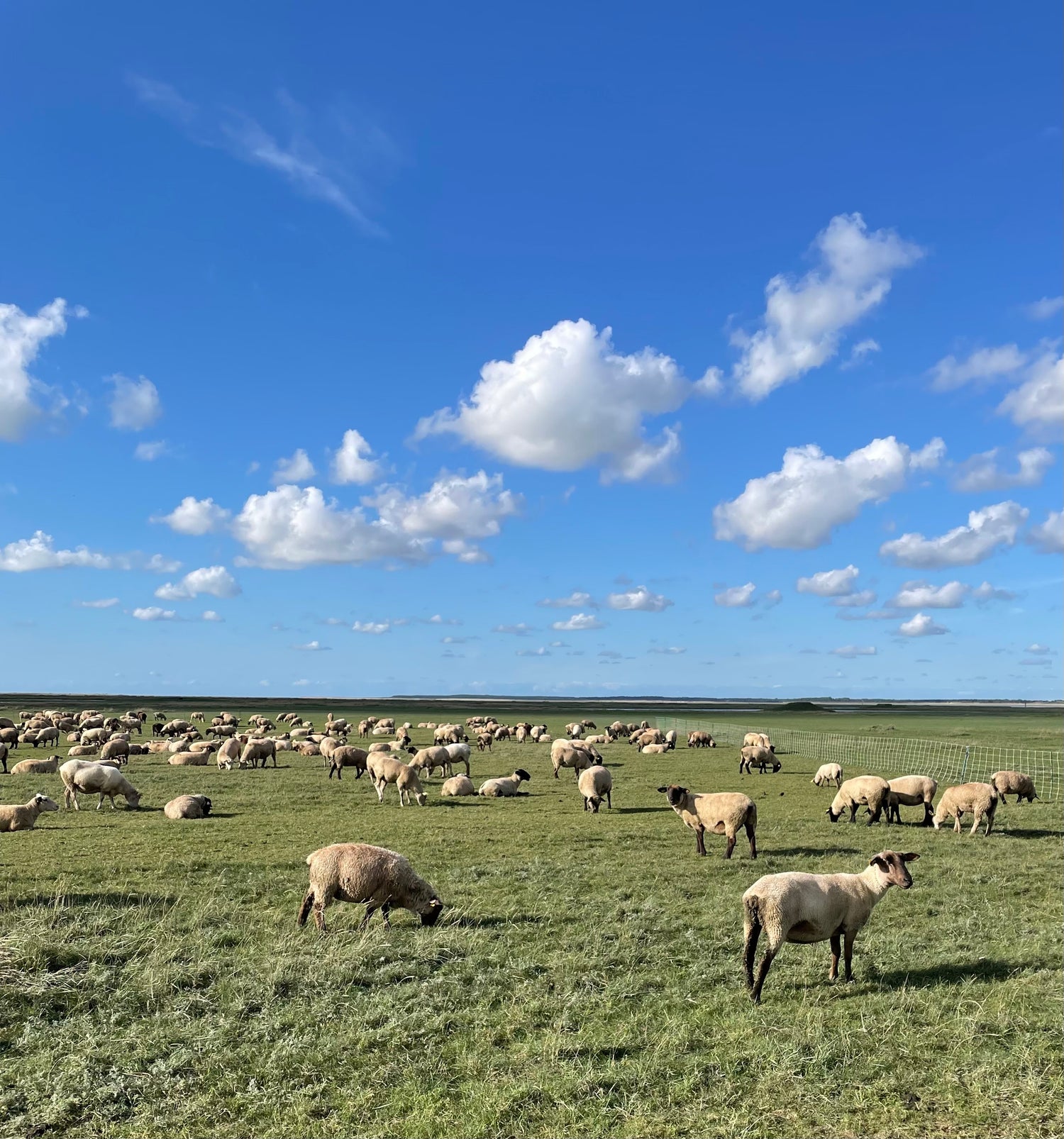Our Knitwear
All our garments are manufactured in Hawick, Scotland, the worldwide reference for top quality lambswool and cashmere knitwear.
Like many people today we feel concerned by the preservation of our planet and this is the reason why we have selected our manufacturing partners not only based on the quality of their production but also on their engagement in sustainability programs.

The individual components of a garment are assembled by hand by highly qualified personnel. Quality checks are carried out by expert eyes at various stages of production in order to ensure the highest possible quality of the finished products.
Relying on the unmatched Scottish know-how and experience to spin yarns, and the mastership of their craftsmen to create knitwear, we are proud to provide our customers with best-in-class products.

Sustainability
Selling garments that are produced in Europe offers numerous sustainability benefits that are worth considering. Here are some key points to explain why this practice is sustainable:
- Reduced Carbon Footprint: Producing garments closer to the point of sale significantly reduces transportation distances. This means fewer carbon emissions from shipping, resulting in a reduced carbon footprint compared to garments produced in far-off locations. By supporting European production, we contribute to mitigating climate change and promoting environmental responsibility.
- Ethical Manufacturing Standards: Europe has stringent labor laws and regulations, ensuring fair wages, safe working conditions, and workers' rights. Buying garments produced in Europe supports ethical manufacturing practices, minimizing the risk of exploitation and promoting social sustainability.
- Local Economy Support: By choosing European-made garments, we contribute to supporting local economies. These businesses often have strong ties to their communities and are more likely to invest in sustainable practices and technologies. It fosters job creation and economic growth while minimizing dependency on overseas production.
- Transparency and Traceability: European production facilities often maintain higher levels of transparency and traceability throughout the supply chain. It allows for better oversight and accountability, ensuring that environmental and social standards are met. Customers can make informed choices by knowing where and how their garments are made.
- Quality and Durability: European-made garments are renowned for their craftsmanship and attention to detail. They are often designed with longevity in mind, focusing on quality materials and construction techniques. By promoting garments that are built to last, we encourage sustainable consumption patterns and reduce the environmental impact associated with disposable fashion.
- Circular Economy Potential: European countries have been at the forefront of the circular economy movement, emphasizing resource efficiency and waste reduction. Garments produced in Europe are more likely to be designed with recyclability and circularity in mind. This facilitates easier material recovery and recycling processes, contributing to a more sustainable and circular fashion industry.
